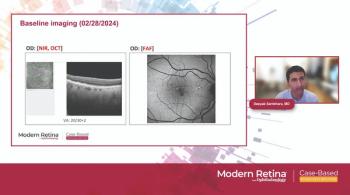
Nanoscope Therapeutics lead candidate MCO-010 meets endpoints in RESTORE trial for retinitis pigmentosa
MCO-010 demonstrated a statistically significant improvement of best-corrected visual acuity (BCVA) at week 52.
The 2-year Phase 2b RESTORE trial has achieved its primary and key secondary endpoints with statistical significance and no serious adverse events. This randomized, controlled clinical trial of Nanoscope Therapeutics lead program, MCO-010, a mutation-agnostic gene therapy evaluated the candidate for treatment in patients with permanent and severe vision loss from advanced retinitis pigmentosa (RP).
The primary endpoint of this trial was met, with MCO-010 demonstrating a statistically significant improvement of best-corrected visual acuity (BCVA) at week 52 in both the high-dose (0.337 LogMAR; p=0.021) and low-dose (0.382 LogMAR; p=0.029) treatment groups compared to the sham control group (0.050 LogMAR). These results are notable in that the Phase 2b RESTORE trial represents the only randomized controlled trial in retinal degenerative disease to demonstrate improvement beyond the clinically important BCVA > 0.3 LogMAR threshold in a statistically significant manner.1
As the patients who participated in the trial were followed, improvements in visual function persisted or increased following week 52. This result shows the durability of a single intravitreal injection of MCO-010. A key secondary endpoint, BCVA improvement at week 76, was statistically significant in the high-dose treatment group compared to the control group (0.539 LogMAR; p=0.001). At week 76, the improvement in BCVA in the low-dose treatment group was not statistically significant compared to control (0.374 LogMAR; p=0.065). These results are consistent with what has been previously observed in the earlier Phase 1/2a open-label study.1
As the company plans for the future of MCO-010, it noted that the high-dose MCO-010 (1.2E11gc/eye) is planned to be the commercial dose. Nanoscope anticipates submitting a Biologics License Application (BLA) to the US Food and Drug Administration (FDA) in the second half of 2024.1
When asked about these results, Allen C. Ho, MD FACS, attending Surgeon and Director of Retina Research, Wills Eye Hospital and Professor of Ophthalmology Thomas Jefferson University said, “The results of the Phase 2b RESTORE trial are important for individuals suffering from severe vision loss caused by advanced retinitis pigmentosa, as well as for the broader domain of gene therapy. RESTORE subjects have demonstrated substantial enhancements in vision, such as elevating a patient’s perception from mere light discernment to the ability to perceive objects and regain some capability to navigate their surroundings. The advent of MCO-010, a mutation-agnostic gene therapy administered in-office and designed for enduring effectiveness, broadens the spectrum of patients who could potentially benefit from treatment. Moreover, the validation of the optogenetic strategy employed by MCO-010 builds upon the pioneering work in FDA-approved ophthalmic gene therapy, heralding other potential significant scientific advancements for retinal diseases. This progress within the retina ecosystem propels advancements for patient care. Ongoing analyses of the RESTORE MCO-010 study will provide further insights, while the exploration of the optogenetic approach for other retinal disorders remains an active area of investigation.”
Reference:
1. Nanoscope Therapeutics Announces Positive Top-line Results from Randomized Controlled Trial of MCO-010 for Retinitis Pigmentosa. Nanoscope Therapeutics. Published March 26, 2024. Accessed March 26, 2024. https://www.prnewswire.com/news-releases/nanoscope-therapeutics-announces-positive-top-line-results-from-randomized-controlled-trial-of-mco-010-for-retinitis-pigmentosa-302098510.html
Newsletter
Keep your retina practice on the forefront—subscribe for expert analysis and emerging trends in retinal disease management.







































